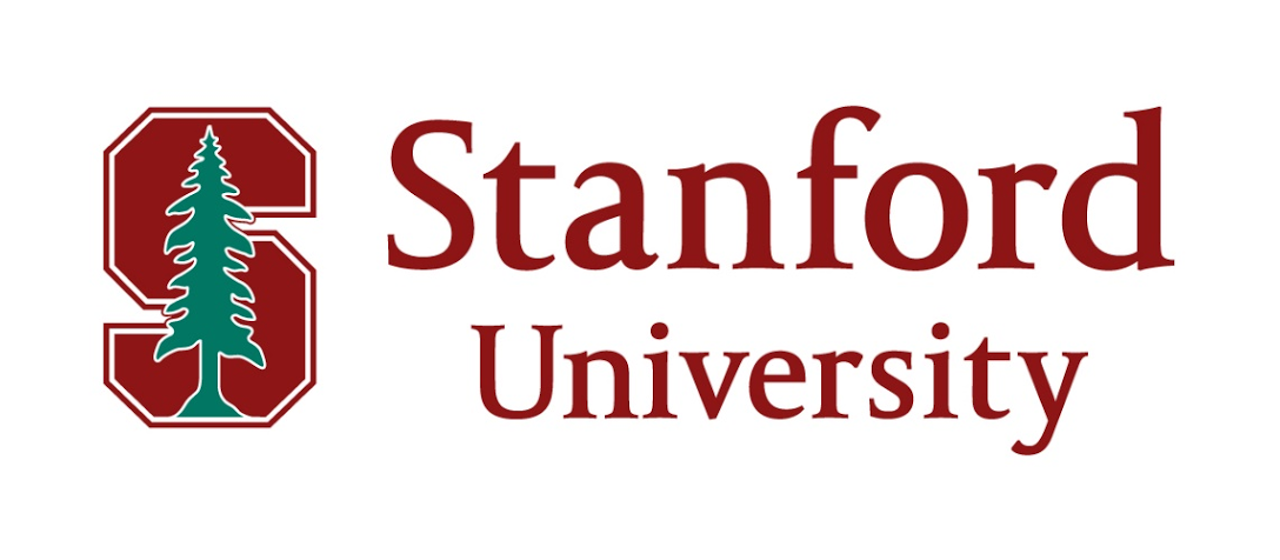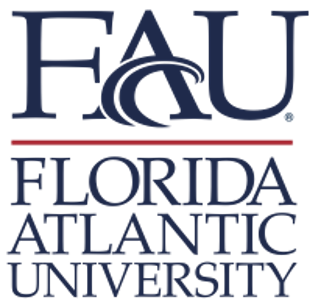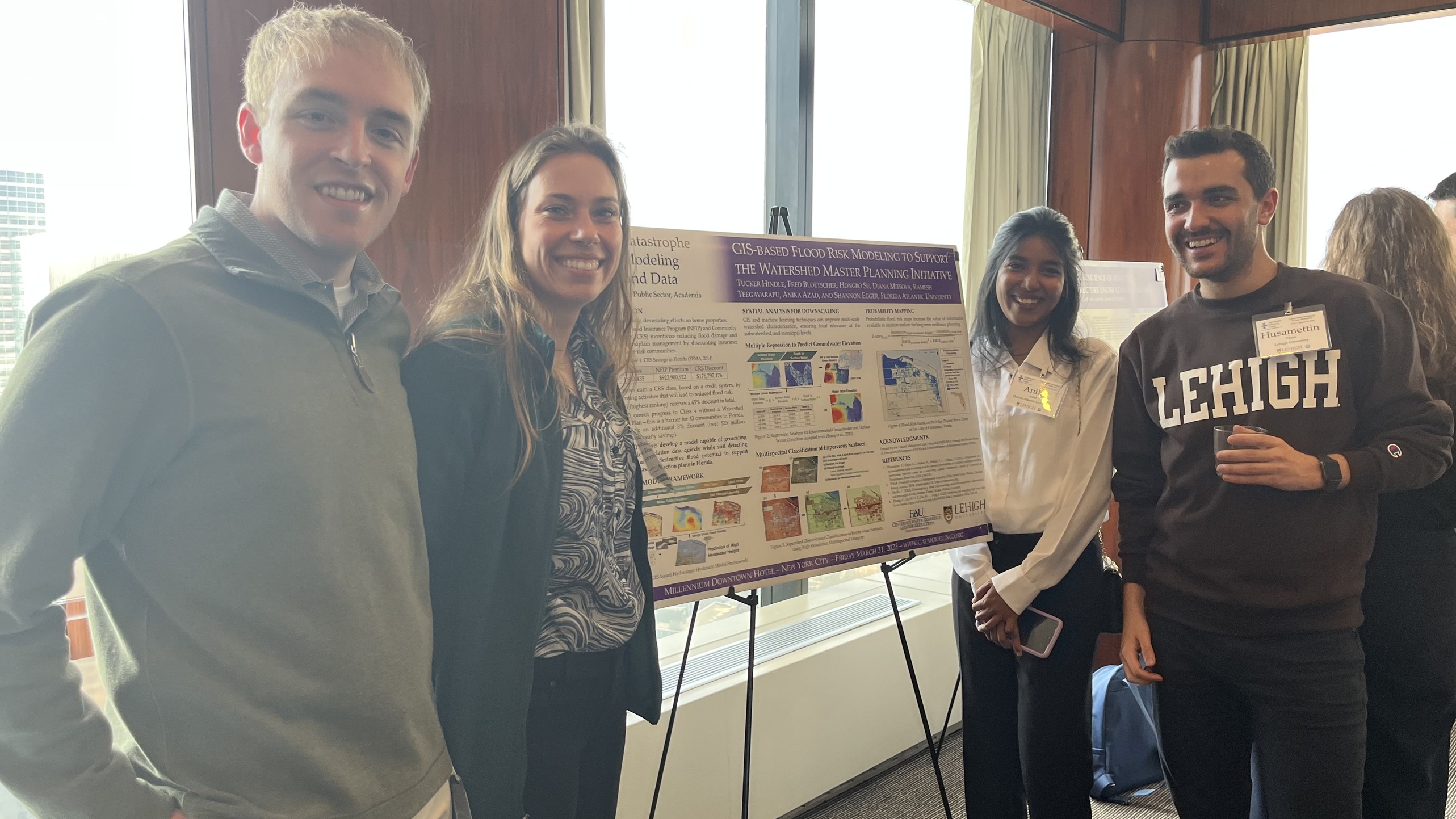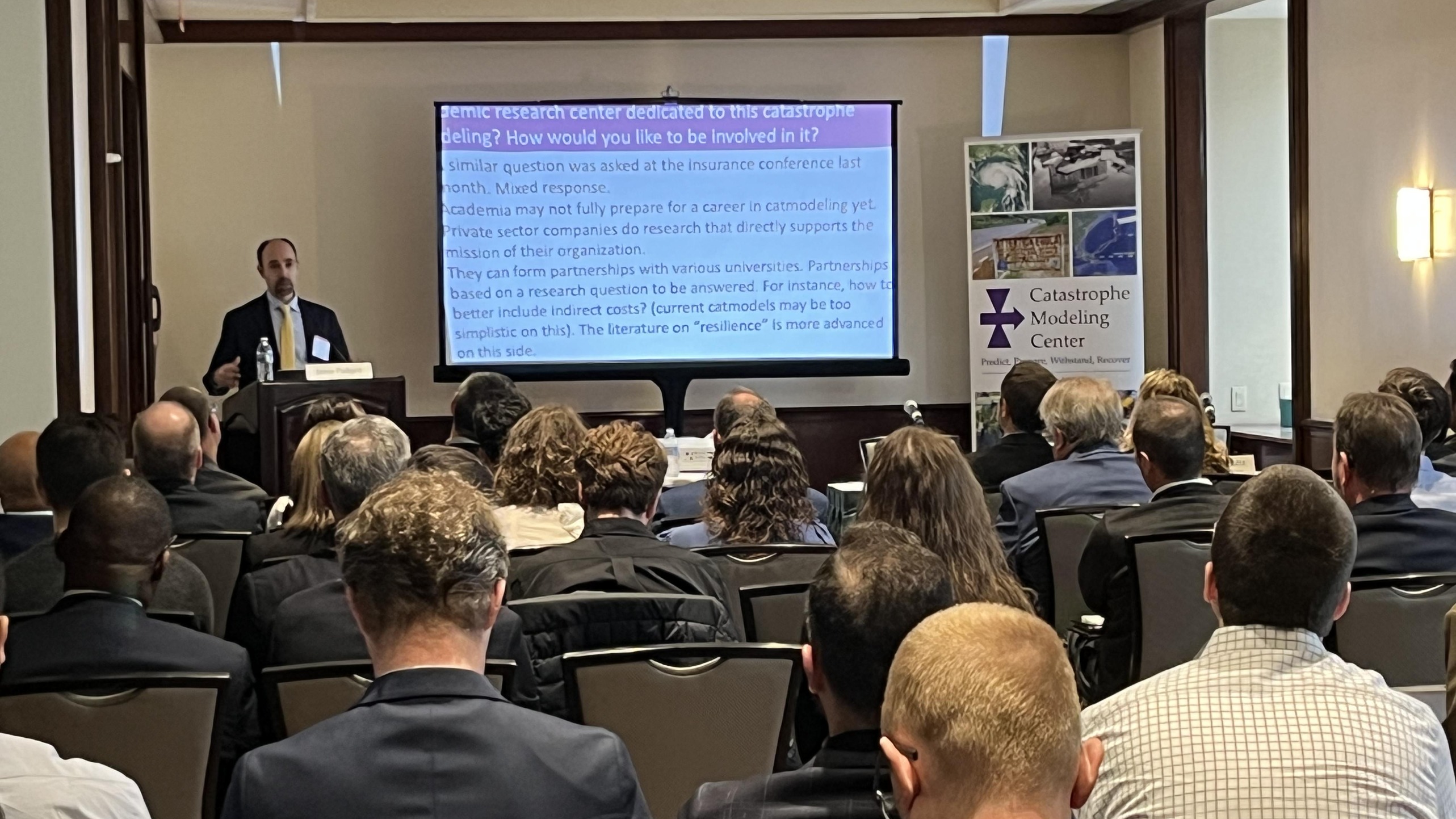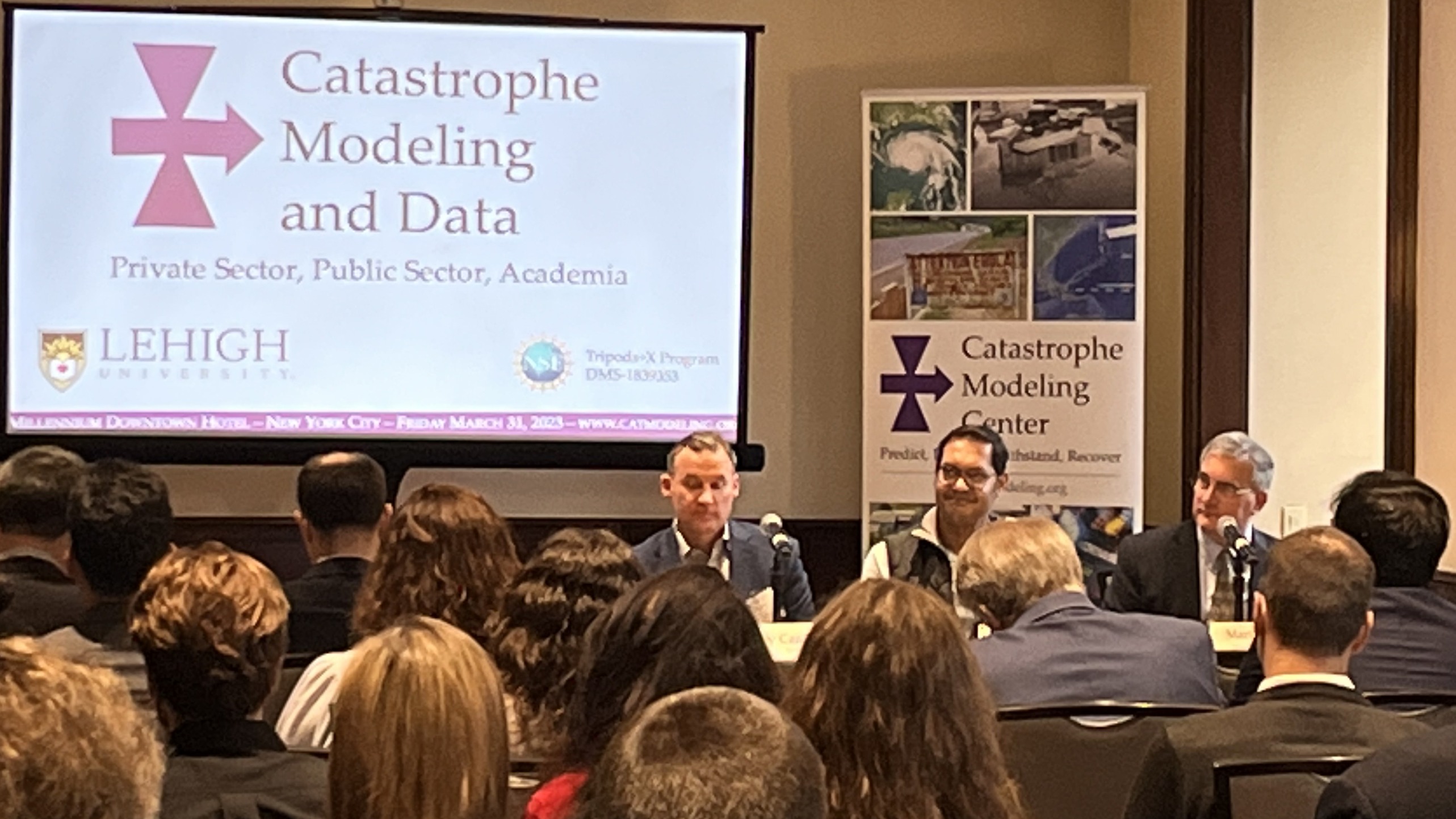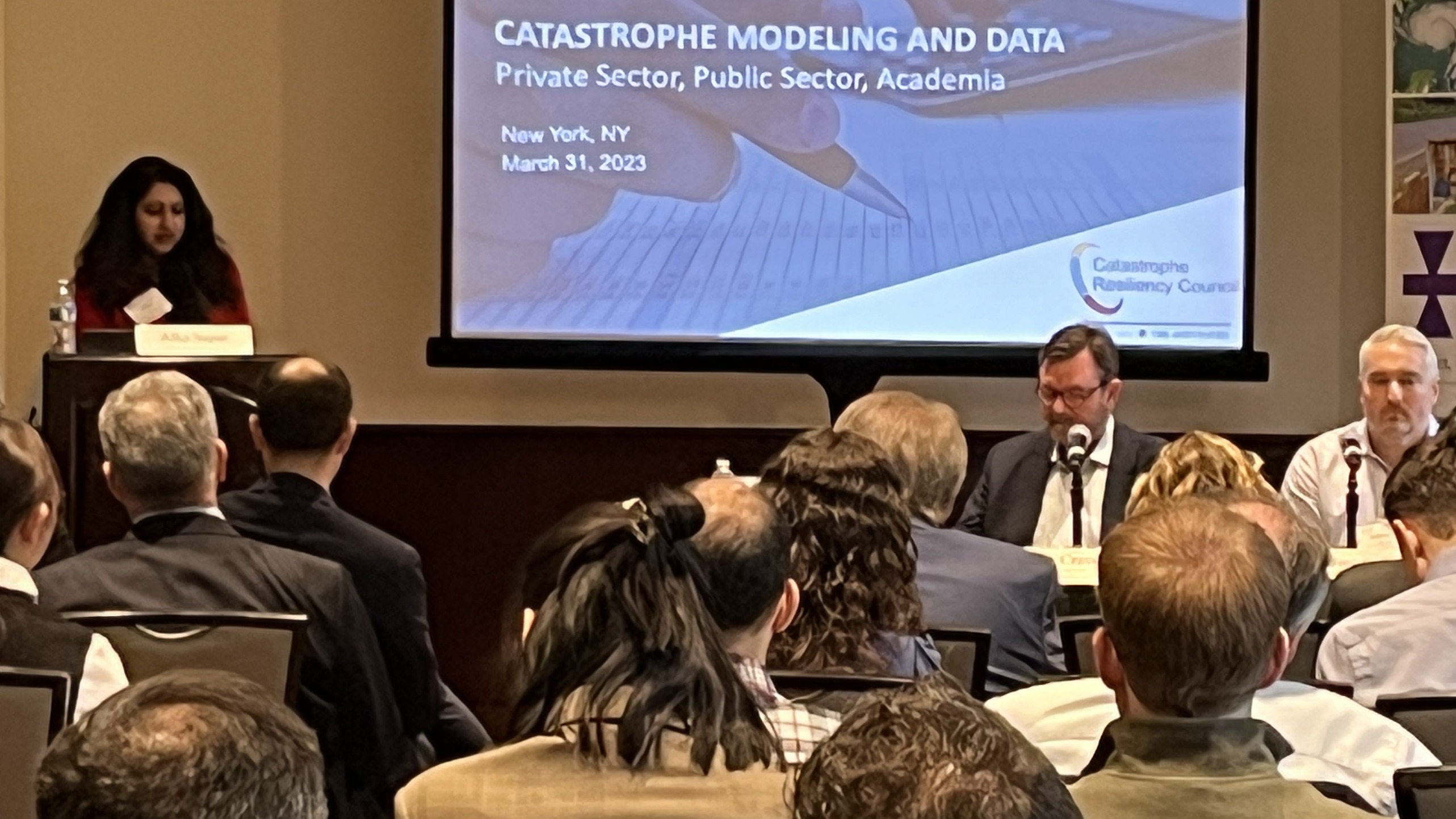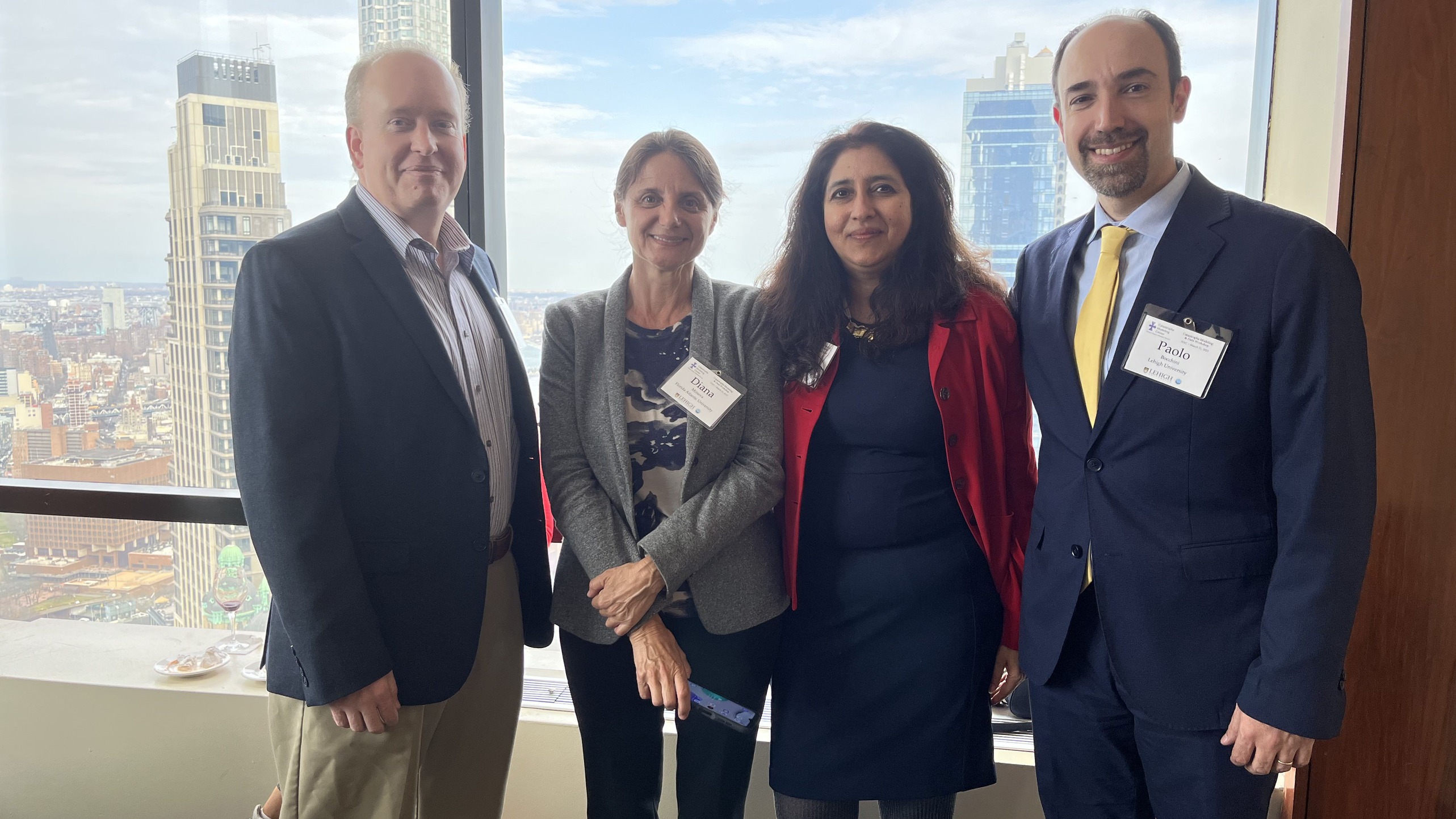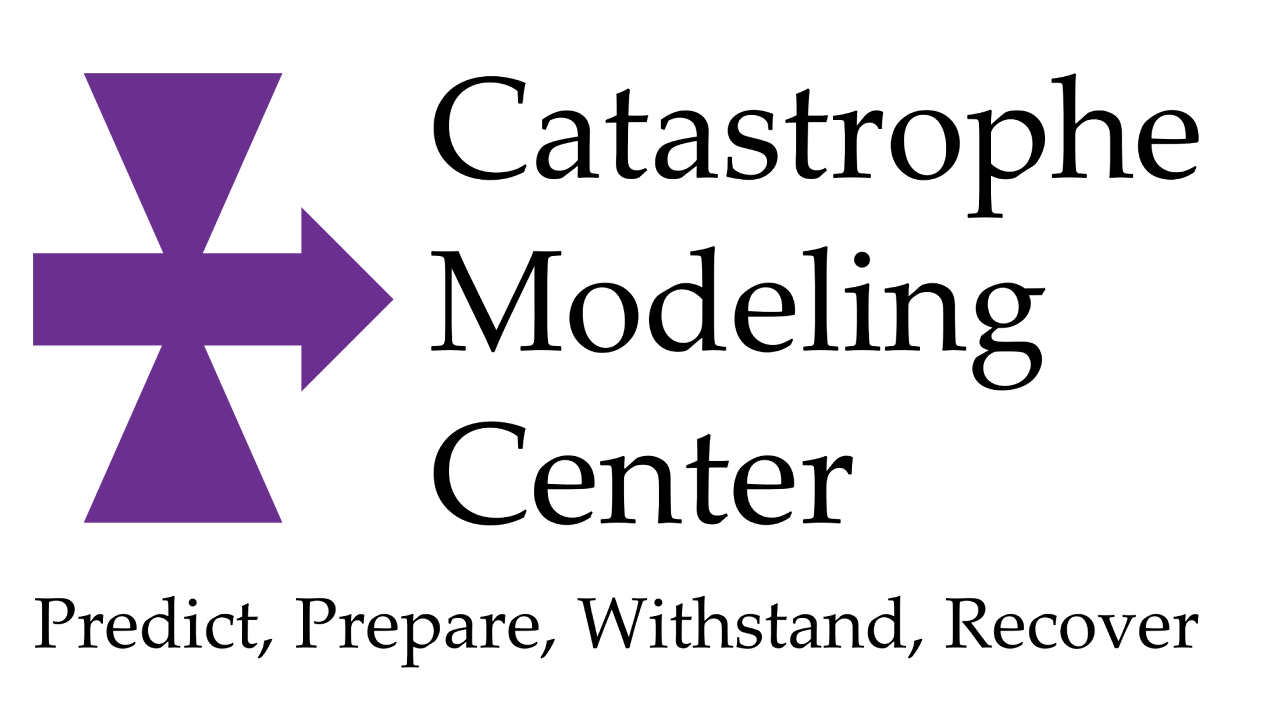


Catastrophe Modeling and Data (Private Sector, Public Sector, and Academia)
The leadership team of the Catastrophe Modeling Coordination Network met leaders from the private sector, public sector, and academia for a day long workshop at the Millennium Downtown Hotel, New York City on Friday, March 31 (2023) to formally launch the center. The workshop consisted of two panel discussions focused on catastrophe modeling research and education, each followed by breakout sessions to discuss key takeaways and brainstorm how the three sectors can synergize and collaborate to advance the field of catastrophe, risk, and resilience modeling. The day was concluded with a poster session for students and post-docs involved with the Coordination Network to showcase their research, followed by a social hour.
The workshop was attended by top executives and scholars at various companies in the (re)insurance sector (e.g., AIG, Aon, Ariel Re, Fermat Capital Management, Swiss Re), public sector agencies (e.g., AASHTO, Bermuda Weather Service, Army Corps of Engineers, NYC Emergency Management, US Navy, USGS), professional and regulatory societies (e.g., Structural Engineering Institute of ASCE, National Association of Insurance Commissioners), global consulting firms (e.g., Arup, WSP), catmodeling firms (e.g., One Concern, Verisk), ONGs (The Conference Board, Catastrophe Resiliency Council, The Institutes), and academia (e.g., Columbia University, Florida Atlantic University, Lehigh University, Stanford University, Rice University).
During the morning session of the workshop, panelists focused on a few key challenges related to research and innovation in the domain of catastrophe modeling, such as the following.
Finding the balance between the benefits of sharing research advancements and data among various entities and the need to preserve proprietary information and IP.
Identifying scientific advancements with the potential of revolutionize the sector or the operation of the catastrophe modeling industry.
Investigating the potential for a company/team/institution to interact with an academic research center dedicated to catastrophe modeling, and the expected involvement with the same.
The panel was followed by an hour long breakout session, in which the attendees were divided into three rooms, each focusing on one of the issues above.
During the afternoon session of the workshop, panelists focused on the questions related to catastrophe modeling education and training.
General skills and knowledge that catastrophe modeling and resilience professionals should have before they join the workforce and before they receive specific training for certification and licensure.
Educational paths, programs, and mechanisms that academia should provide to facilitate initial/continuous training of catastrophe modeling and resilience professionals.
Potential benefits of a small conference on Catastrophe Modeling and Resilience as a venue for academia, industry, and public sector to share progress, coordinate professional development, and offer a central venue for recruitment.
As with the morning sessions, this panel discussion was also followed by an hour long breakout session in three groups.
The details from the discussions in the workshop will be compiled and presented as a report soon.

